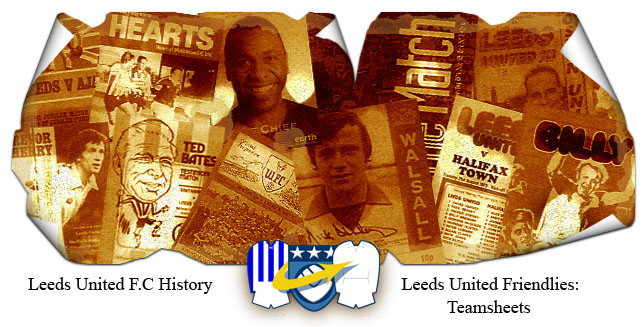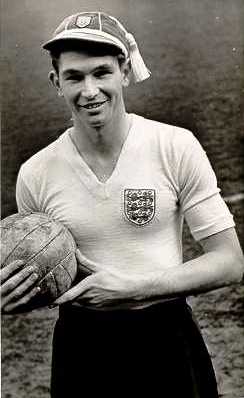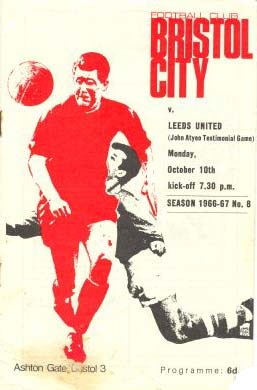| |

10-10-66: Bristol City (a) 4-2 (HT ?) Crowd (17,425)
| Shirt No. | Player Name | Goals Scored | | | |
1. | Sprake, Gary | | | | |
2. | Reaney, Paul | | | | |
3. | Bell, Willie | | | | |
4. | Greenhoff, Jimmy | | | | |
5. | Charlton, Jack | | | | |
6. | Hunter, Norman | | | | |
7. | O'Grady, Mike | | | | |
8. | Lorimer, Peter | | | | |
9. | Madeley, Paul | | | | |
10. | Giles, Johnny | | | | |
11. | Johanneson, Albert | 1 | | | |
| Unknown (Bristol City) | 1 (og) | | | |

Peter John Walter Atyeo, always known as John, was born at Dilton Marsh, Wiltshire on 7th February 1932. He first signed for Portsmouth in 1950, on part-time amateur terms, but after making his debut, on 11th November 1950 against Charlton Athletic at Fratton Park, it was his only League game. Portsmouth were well served in the strikers department, with Dougie Reid, Ike Clarke and Len Phillips scoring regularly, Atyeo chose to remain a part-time amateur and joined Third Division South side Bristol City in the summer of 1951 and continued his occupation of quantity surveyor. He went on to become the highest goalscorer in the club's history and despite offers from top-flight clubs, such as Chelsea, Tottenham Hotspur and Liverpool, which would have broken the English transfer record of the time, he chose to remain with Bristol for the rest of his career. He had scored three hundred and fifty goals in six hundred and forty-seven appearances when he retired in 1966. Like John Charles his record was impeccable, never having been booked or sent off. He was capped six times by England and scored a creditable five goals, four of which came in three World Cup qualifying games. It came as quite a surprise and a huge disappointment when he was omitted from the England squad for the 1958 World Cup Finals. He made his England debut on 30th November 1955 at Wembley against Spain and scored in the eleventh minute, as England won 4-1. He did not score in either of his next two international appearances, against Brazil at Wembley on 9th May 1956, which was again won 4-2, but Atyeo missed a penalty, and a week later in a 0-0 draw with Sweden in Solna. However he was on the mark in each of his last three games, in the 5-1 win over the Republic of Ireland at Wembley on 8th May 1957, when he scored in the thirty-eighth and eighty-ninth minute, a week later in Copenhagen in a 4-1 win over Denmark, in which he scored in the seventy-sixth minute and four days later at Dalymount Park in Dublin, when he scored in the last minute as England salvaged a 1-1 draw with the Republic of Ireland. He never played for England again but he had already scored three goals in five appearances for the England Youth team, two goals in three appearances for England Under-twenty-three team and twice for England "B" in three appearances. He also twice represented the Football League but his only honour with Bristol City came when the were Champions of the Third Division South in the 1954-55 season. After he retired from Football he became a Mathematics teacher and also a journalist. He died at Warminster, Wiltshire on 8th June 1993. Bristol City named their new stand in his honour in 1994.
Programme:

David Harvey replaced Gary Sprake in goal. Jimmy Lumsden, Terry Cooper, and Mick Bates were substitutes and Jim Storrie and Eddie Gray both scored after coming on as replacements, times unknown.
|


